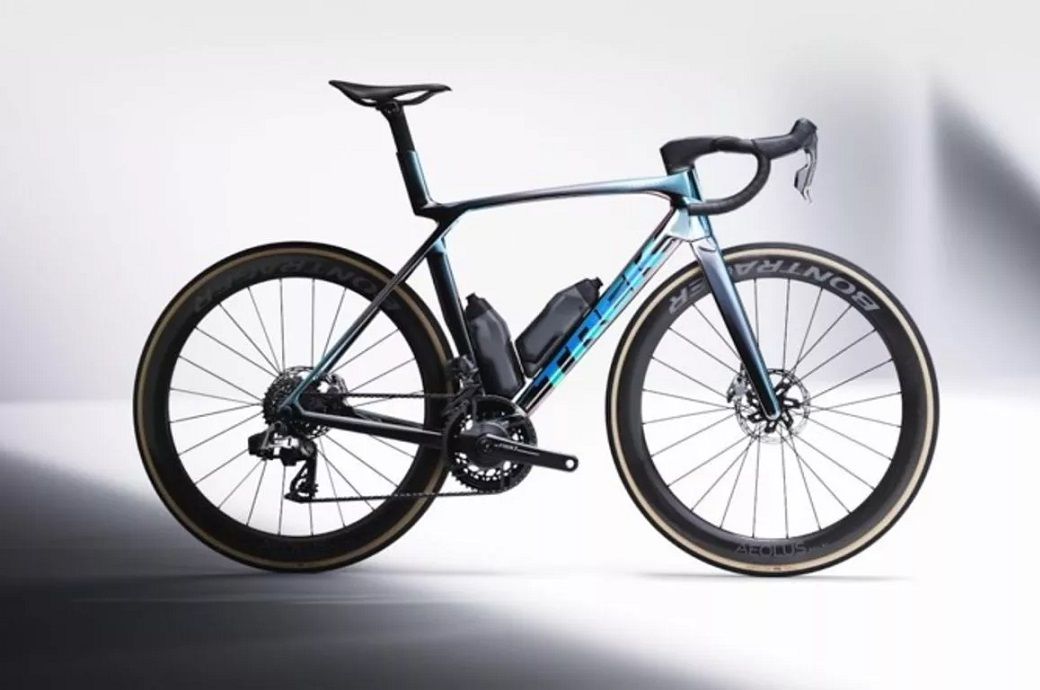
The bike, introduced at the 2024 Tour de France, features small parts in the headset area manufactured using innovative glass-fiber reinforced high-performance polyamide (HPPA) compounds with a very high recycled content. By incorporating these materials, the Trek Madone achieves a lower carbon footprint (PCF), helping advance sustainable practices within the cycling industry.
“We are thrilled to embark on this exciting partnership with Trek, as part of our efforts to forge a greener future. Leveraging our expertise, we aim to assist Trek in meeting their ambitious sustainability goals within the rapidly expanding bicycle and e-bike industry.”
Floryan Decampo, market VP Life Solutions at Syensqo
“These parts are just one of the many things Trek is doing to reduce the impact of our products. In the future, we’ll continue replacing legacy polymers with lower carbon impact options. These materials will help Trek meet our carbon emission reduction goals and help our racers inspire a better world for cycling transportation.”.
Reggie Lund, senior mechanical engineer at Trek
The Syensqo and Trek Bicycle Corporation collaboration exemplifies how innovative partnerships can drive industry progress. By integrating advanced materials into the Madone Gen 8 road bike, Syensqo is addressing environmental challenges and meeting consumer demand for eco-friendly products.
The bicycle market is witnessing an unprecedented boom, particularly in the e-bike sector, where demand is soaring. In response, manufacturers are looking for innovative solutions that boost performance, cut costs, and lessen environmental impact. Syensqo's cutting-edge specialty polymers surpass traditional metals and plastics in e-bike manufacturing, delivering cost efficiency, design flexibility, and sustainability. With our strong commitment to sustainability through our ECHO portfolio and our efforts to help customers reduce their carbon footprint, Syensqo is ideally equipped to support this expanding market.
Fibre2Fashion News Desk (HU)